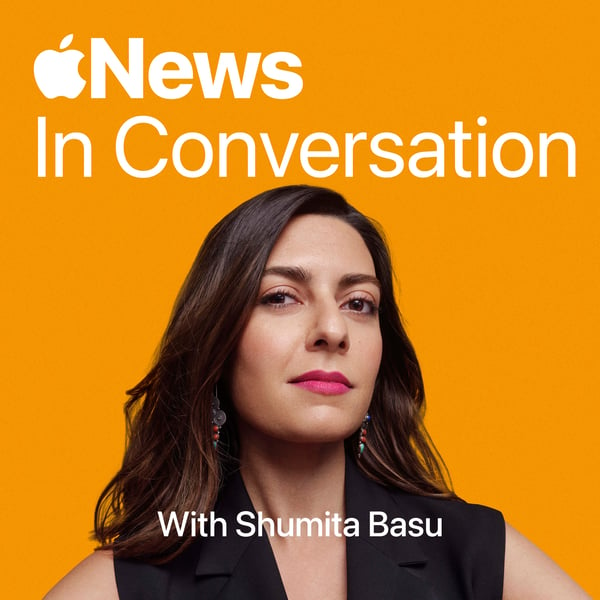Nobel Peace Prize–winning journalist Maria Ressa on how to stand up to a dictator
Apple News In Conversation
Apple News
4.6 • 1.3K Ratings
🗓️ 10 December 2022
⏱️ 28 minutes
🧾️ Download transcript
Summary
Nobel Peace Prize–winning journalist Maria Ressa has a warning for the world. In her new book, How to Stand Up to a Dictator, Ressa lays out how social media has been weaponized to support the rise of authoritarianism in the Philippines — and why the rest of the world needs to pay attention. She spoke with Apple News In Conversation host Shumita Basu about the urgent actions needed to safeguard democracy today.
Transcript
Click on a timestamp to play from that location
| 0:00.0 | This is in conversation from Apple News. I'm Shimita Bassu. Today, a cautionary tale about how social media threatens democracy. |
| 0:17.0 | Nobel Peace Prize winning journalist Maria Resa wants the world to wake up and pay attention, |
| 0:30.6 | specifically to the Philippines. |
| 0:33.0 | Because what's happening there, she says, should serve as a warning to all other countries |
| 0:39.0 | about the way authoritarian leaders can use social media to intentionally spread disinformation and undermine democracy. |
| 0:47.6 | I call it insidious manipulation all the time, but this is a corruption of our information ecosystem, |
| 0:52.3 | and frankly, someone should be held |
| 0:54.2 | accountable because impunity online is impunity offline. |
| 0:59.6 | Maria has been a journalist in Asia for over three decades, working at CNN, then the major |
| 1:06.0 | Philippine media company, ABS CBN. Then in 2012 she co-founded Rappler, the top digital news site serving the Philippines. |
| 1:16.7 | She's been arrested multiple times, and she faces charges that could put her in prison for |
| 1:21.8 | the rest of her life. |
| 1:24.0 | She's out now with a new book called How to Stand Up to a Dictator. |
| 1:29.4 | In it she lays out a few reasons why the Philippines has been ground zero for the kind of impact |
| 1:35.0 | that social media can have on a democratic system. One reason is the Philippines has a |
| 1:41.3 | super plugged in population. |
| 1:44.0 | When social media came, we were first adapters because |
| 1:48.0 | while the United States was still like 35, 40% on mobile, The Philippines was 87% 90% on mobile. And not just plugged in generally, but very much on Facebook. |
| 2:02.0 | By the time we set up Rappler, you know, 97% of the Filipinos on the internet were on Facebook. |
| 2:10.0 | Facebook was our internet. |
| 2:11.6 | It also has cheap labor, a government with a culture of corruption, |
| 2:16.0 | and for the last six years an authoritarian political leader vying for more power. |
... |
Please login to see the full transcript.
Disclaimer: The podcast and artwork embedded on this page are from Apple News, and are the property of its owner and not affiliated with or endorsed by Tapesearch.
Generated transcripts are the property of Apple News and are distributed freely under the Fair Use doctrine. Transcripts generated by Tapesearch are not guaranteed to be accurate.
Copyright © Tapesearch 2025.

